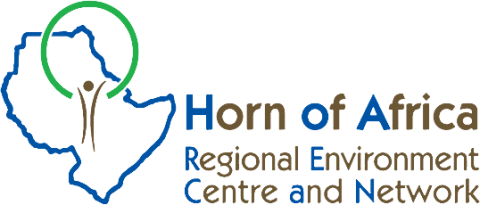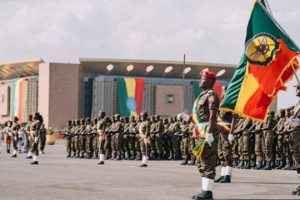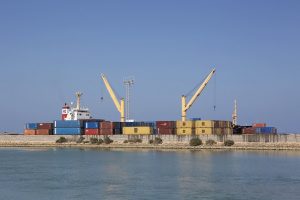
The Horn of Africa region’s economic indicators demonstrate the urgent need for transformative commitment and reform policy measures, in particular addressing the sources of sustainable economic and social development as well as regional political stability. Inspiring and sustaining high economic growth has, therefore, been the most pressing challenge of political leaders, policymakers, and change agents of countries of the region.
Regional cooperation matters the most if all counties of the Horn ion particular and those of the entire continent in general would love to bring about change in all circumstances.
Having this concept in mind, The Ethiopian Herald had a stay with Meles Fesehatsion, a Political Science and International Relations graduate from Addis Ababa University, to have a piece of information about the Horn cooperation for political stability and sustainable economic progress.
He said, “Regional collaboration within the Horn of Africa is crucial for achieving political stability, as the region faces tenacious challenges like conflict, instability, and economic disparities. By consolidating regional cooperation, the Horn of Africa can address these challenges more effectively, promote sustainable development, and improve the lives of its citizens.”
He further elaborated that regional cooperation for development and stability in the Horn of Africa is of paramount importance in bringing about real change in all spheres. The current state of economic and social performance of the sub-region, and the rationale for intensifying cooperation in trade and investment, and economic infrastructure grounds would supplement the effort exerted towards coming up with political stability and economic advancement. Yes, garnering the benefits the Horn does have at hand and addressing the challenges facing the implementation of enhanced regional cooperation for the development and political stability have to be well underscored to create prosperous Africa in general.
Undeniably, there has been strong momentum in the Horn of Africa sub-region to promote cooperation across a range of issues; primarily in resolving long-standing conflicts, entering into political dialogue, and initiating joint initiatives to explore closer economic engagements. However, the economic cooperation attempts, thus far, have been general and less rooted in specific commitments and measures to move the process forward, he added.
As to him, still, cooperation in the economic and social sphere has not been as robust and has not achieved much success as expected. The economic cooperation efforts require a thorough understanding of challenges faced and coordinated actions to deliver lasting solutions to problems that have kept the sub-region countries among the least developed in the world.
Accordingly, all the nations have to move in unison to get the state of economic and social spheres boosted, which marks the important need for sustained transformation through the pursuit of a cooperative partnership.
He said, “Through centuries there has been informal trade between the border communities, given common cultural and historical linkages. A key rationale for economic cooperation is to manuscript how the countries can further build upon their relationship and strengthen investment and trade partnership that could nurture the people to people interactions exhibited in the border settlements.”
Needless to state, Ethiopia has experienced sustained growth, particularly in the last decade and a half, when the country maintained one of the highest annual economic growth average achieved anywhere in the world, he opined.
Since the Horn of Africa region is at the core of regional and international contentions, it has to be well taken care of. It enjoys a unique location on Bab El-Mandeb Strait and the Red Sea, diverse natural resources and fertile soil, a history and the present replete with conflicts and wars within and among regional countries, such a gloomy fashion has to be altered and Africa needs to be the basket of bread tantamount to its untapped and untold social, economic and cultural resources, he added.
The region has many overlapping and competing ethnicities and several demographic and political factors; of course, he stated adding that these complexities lead to a constant shift in the dynamics of conflict and cooperation, making the region stuck in a network of regional security issues.
Besides, the Horn of Africa region has recently been going through a critical juncture that puts its stability at stake, with regional – and perhaps international – repercussions. The conflict in many countries has to be prettily addressed following the golden principle of the continent of Africa in relation to its Agenda 2063, ‘African solutions to African problems.”
For instance, he said, there is political and security uncertainty in Somalia due to political divisions, the threat of terror from Al-Shabab Movement, and turmoil in the southeast of Somaliland. Moreover, Ethiopia’s efforts to access a seaport have caused tension with neighboring countries on the Red Sea and the Gulf of Aden.As to Meles, the cycle of polarization and tension due to the conflict in Sudan between the army and RSF, which is expanding and attracting regional and international actors, might bring the civil war in this country to a new and gloomier juncture. This is possible due to the dramatic shift in the map of influence and power balance on the ground, the relative change in local alliances, and the continued political stalemate.
The most important matter that needs to be taken into account in his regard is as to him the key issues that need to be properly dealt with in a collaborative fashion are insecurity and instability; poor governance, climate change, weak infrastructure, inadequate human capital as well as low domestic savings and limited access to finance, both domestic and external.
Since prolonged inter-and intra-state conflicts have marked many of the countries in the sub-region, all nations have to work hard prioritizing peace and security as it has all the time been the viable source of all growth and prosperity paths.
True, turmoil and conflict diverted finance to non-productive use, destruction of productive capacity, the collapse of the service sectors, diminished public sector capacity in policy setting and overall maintenance of the rule of law, and creating a general sense of insecurity constraining investment and market access. Hence, peace has to prevail and given due emphasis to make a difference in all aspects, said Meles.
Lack of peace absolutely causes overall fragility in the region – amplified by conflict as it is compounded by a generally weak economic governance and mismanagement/misallocation of resources accounting at least partly for the poor performance of the countries.
It is well recognized and repeatedly heralded that the Horn of Africa remains a region marked by persistent conflicts and the constant risk of instability. The unprecedented realities in the recent conflicts in Sudan and Somalia indicate how the region is susceptible to severe turmoil and chaos. Taking all these signals into account, it is high time for the region to amalgamate energy and resources to name the Horn and Africa as per its state of richness.
Obviously, he added, socioeconomic factors and historical ties have specifically affected the rise of conflict within the region. This then encourages the development of national, regional, and global based policies that can aid in its resolution. Issues that tend to garner the most attention include maladministration, border disputes, and the disputes on the Nile Waters. If these and the not yet cited are addressed, making the Horn stable and economically muscled will be easy. Moreover, there should be more efficient and timely regional responses to conflicts to prevent immense human suffering and destruction.
In sum, since the lack of democratic governance and restricted participation of citizens in national affairs is a persistent challenge in the Horn of Africa, which in turn causes economic and social progress deterioration, countries of the Horn need to capitalize on it. As lack of cooperation, unity and spirit of working for common good can open loopholes to widen social, economic and even political gaps, these aspects have to be given due emphasis. However, failing to establish democratic order and pluralism in the region is a major factor in creating socioeconomic inequalities and poor governance practices. This then ultimately pushes people towards political methods of extremism, which can easily brew longstanding conflicts. Thus possible solutions have to be devised to make Africa in general and the Horn in particular politically stable and economically prospered.
BY MENGESHA AMARE
THE ETHIOPIAN HERALD TUESDAY 29 APRIL 2025




